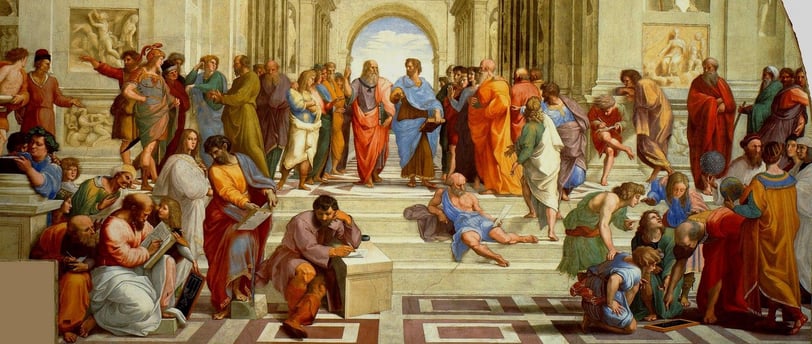Understanding Value Conflicts: Philosophical Prerequisites and Consequences
One of the central themes in my philosophical exploration is the conflict of values and its implications. My research delves into the prerequisites for forming values, how values interact with the world, and how they legislate our ethical judgments. Drawing on Nietzsche and Deleuze, I argue that evaluation is not simply premised on values, but rather, evaluation and the “perspective of assessment” are the true prerequisites for value; the value itself derives from the former, through which we assess the world. This shift—from static, fixed principles to modes of existence—enables us to better understand the pluralism of values in both individual and societal frameworks. As a preliminary step toward my own philosophy, this work seeks to critically extend and refine the Spinoza-Nietzsche-Deleuze framework, offering a fresh perspective on values and belief systems.
POLITICAL PHILOSOPHYACADEMICTHEORETICALPOLITICS OF PRACTICALITYGLOBAL PEACE


One of the key threads in my thinking and research is the conflict of values, e.g. the prerequisites for forming values and ethical judgments, the interaction between values and the world, and how values legislate for the world. How can I succinctly explain my research? The subject that plays a role in the world is “values”. “Values seem to be defined as principles: evaluation is premised on values, and only on this basis can phenomena be assessed. However, a deeper perspective argues that evaluation and the “perspective of assessment” are the true prerequisites for value; the value itself derives from the former.” (Nietzsche, sa vie, son œuvre: avec un exposé de sa philosophie, Gilles Deleuze, 1965) This echoes Kant’s Copernican Revolution, where it is no longer a culture, a climate, a nomos, or a religion that occupies the center and determines human evaluation and assessment perspectives. Instead, it is the perspectives of evaluation and assessment that determine value. Value and evaluation (the “perspective of assessment”) together constitute a system of values. “At its core, evaluation is not about value; rather, it is about modes of existence—specifically, the ways of living of those who make judgments and assessments. This evaluation serves as the principle of value, with people grounding their judgments in this value principle. This is why, under certain modes of existence or forms of life, we consistently hold our own beliefs, emotions, and thoughts.” (Deleuze) This is the core of Nietzsche’s work and the starting point of my thought. According to Deleuze, Nietzsche’s most significant contribution is the introduction of the concepts of meaning and value into philosophy.
Nietzsche’s philosophy of value can be condensed into two sentences: “Evaluation is a prerequisite for value; but in essence, the perspective of evaluation and assessment is the prerequisite for value.” All religious wars, conflicts of civilizations, gaps in concepts and other contradictions caused by value differences can be understood and interpreted in this way. Another invention of Nietzsche is “will to power”. In essence, “All power is the possession, control, and utilization of a certain quantity of reality. History is the transformation of meaning, marked by the alternating conquests of phenomena by various powers. Meaning is always a collective quantity; new interpretations represent conquests, a form of domination.” (Deleuze) Why does this idea wield such immense influence? Because the pluralism of values is essential. In fact, pluralism (also known as empiricism) is nearly indistinguishable from philosophy itself. The existence of pluralistic values is created by philosophy. This is the “war of the gods” that exists in the history of philosophy, reflecting the “war of the gods” that exists in human history to this day.
Every existing thing that humans believe in is a value system, a god/deity. Evaluation is essentially a way of existence, a mode of living for those who make judgments and evaluations, determining our own beliefs, emotions and thoughts that we will always have under specific ways of existence or forms of life. “Evaluation serves as the principle of value, and people base their judgments on this value principle” in every historical stage. Philosophy is indistinguishable from empiricism and historicism. The pluralism of values lies at the essence of philosophy.
Philosophy of value not only reveals and explains, but also determines people’s ethical life, social and political life in the real world. The possession of different beliefs, emotions, and thoughts is not an active mastery by human agency; rather, it is the power of values and meanings that possess individuals, controlling and utilizing a certain quantity of reality. This reflects a determinism rooted in German metaphysics, from Luther, Hegel, to Marx, which was transformed by Nietzsche into a Spinozist determinism and then into his new invention—the will to power.
What I intend to do next is to place Nietzsche’s philosophy of value and the theory of the will to power within a historical framework, situating them and addressing the issues of pluralism in our times. The philosophy of meaning and value must be a form of critique—one that is dynamic and reflective in reality. This approach not only inherits Nietzsche’s ideas but also engages with Spinoza’s critique of religion (and his goodwill). It responds to issues of laïcité and freedom of thought, conscience, and religion, as well as multiculturalism, (non)religious identity, and new power relations that transcend religious ones. It aims to address diverse ethical principles, global citizenship, and the interconnected responsibilities of individuals and nations in a globalized world.
Let’s consider the pressing issues of our time, from the Punjabis, Hindus, Muslims, Sikhs in India, South Africa’s apartheid, to the complexities of multiculturalism, the melting pot of U.S., mosaic in Canada, the refugee crisis in Europe, Turkey’s secularism, Iran’s theocracy, the legacies of imperialism in the Middle East and Africa, the legacies of Latin America’s national independence movements, and the discontent with the old order led by Western-centric white supremacy and ideology…
These are the issues that linger in my mind days and nights—the “big questions” of our time.
Copyright © 2023 Simone Mao. All rights reserved.
